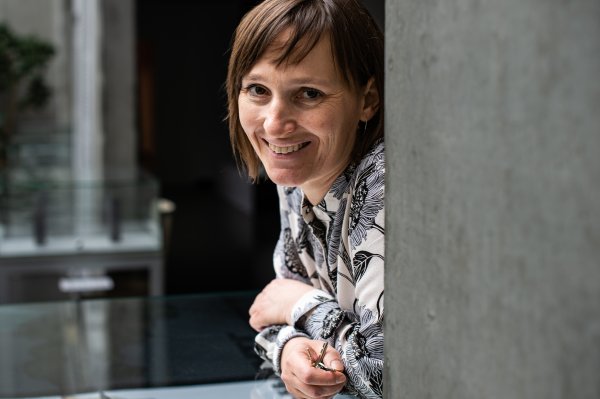Ombudswoman fa
The ombudswoman contributes to the development of a welcoming, fair and safe working and learning environment that reflects the needs of students and employees and respects diversity in terms of gender, sexuality, ethnicity and nationality. It is committed to promoting equal opportunities for learners and employees and facilitating the reconciliation of study, work and personal life. It seeks fair consideration and resolution of complaints, which it treats confidentially in accordance with Dean's Directive 03/2022.
What areas of faculty life will the ombudswoman have an impact on?
Help in dealing with suggestions
The ombudswoman deals with complaints from students and staff about unfair treatment, inequality and unfair behaviour that could not be resolved through standard channels. The Ombudsperson also provides negotiation and mediation between the parties to the conflict.
Providing feedback and making suggestions for improvement
The ombudswomn continuously maps the situation at the faculty – internal processes, needs and problems of male and female students and employees. For the past year, he/she then submits an anonymised report on his/her activities, summarising the number of cases dealt with and how they were assessed, analysing problems and shortcomings at the school and proposing specific changes and conceptual solutions. The faculty management is obliged to address the proposals.
Prevention, education, self-education
The ombudswoman participates in the development of educational materials, organization of seminars, workshops and other educational activities aimed at creating and maintaining a safe and fair environment at the Faculty. At the same time, the ombudswoman continually adds to her/his knowledge and skills to be used in the performance of her/his duties.
What principles will the ombudswoman follow?
The basic principles of the Ombudswoman's work and position are based on the standards defined by the International Ombudsman Association STANDARDS OF PRACTICE. They are:
Independence
The role of ombudswoman is incompatible with selected academic roles within the University. A specific list of these is set out in Dean's Directive 03/2022, Article 2, paragraph 3. The function of the ombudswoman is independent of the academic bodies – it complements their activities within the faculty, but does not interfere with their functioning.
Neutrality and impartiality
The performance of the ombudswoman's position presupposes neutrality, impartiality and disinterestedness.
Confidentiality of information
In dealing with complaints, the ombudswoman shall keep all communications confidential and shall not reveal the identity of any of the persons involved without consent, except as provided in Dean's Directive 03/2022, Article 2, paragraph 3. No one shall be penalized for having contacted the ombudswoman and used her services.
Informality
The ombudswoman operates on informal principles. The preferred method of resolving disputes is by agreement, which the ombudswoman can support through his/her work.
Who can contact the ombudswoman?
Anyone who studies or works at the faculty can contact the ombudswoman. The ombudswoman can be contacted via email: ombudsmanka@fa.cvut.cz or during office hours, which will be specified shortly, along with her office number.
You can submit a complaint to the ombudswoman:
- in writing by email
- in person during consultation hours
- in person outside consultation hours by prior arrangement
- anonymously via a drop box which will be located near her office
Once a complaint has been submitted, the ombudswoman will assess whether or not the complaint falls within her remit. She does not have to deal with complaints that are not properly substantiated.
What will the ombudswoman help look like in solving problems?
Once the ombudswoman receives the complaint, he/she can contact the submitter and arrange a more detailed consultation. The form and manner of the consultation are negotiable. It is possible to bring another person to the consultation who is trusted by the submitter.
In relation to the complaint, the ombudswoman may offer, for example: assistance with the formulation of a formal or informal complaint or suggestion (e.g. to the dean, disciplinary committee, ethics committee, etc.), a solution in the form of a mediated meeting of interested parties, mediation of other internal assistance (e.g. contact to psychological counselling, socio-legal counselling, etc.) or other forms of assistance.
What authority will the ombudswoman have?
The ombudswoman has no decision-making power. She provides support and information to those involved about the options for resolution within the academic bodies of the Faculty and the university. The ombudswoman may request cooperation within the Faculty and may request access to relevant information about a particular case. The ombudsperson cannot replace academic or law enforcement authorities.
The complete text of the Dean's Directive establishing the Ombudswoman of the Faculty of Architecture of the CTU in Prague is available for download via the link below:

